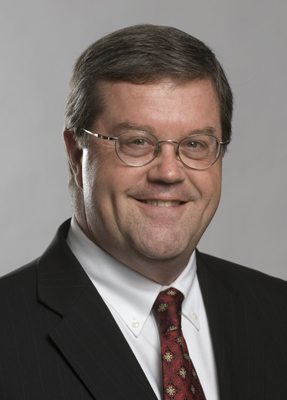As I looked at the story that ran on the Birmingham News’ site on Saturday about Mayor Langford wanting to bid for the 2020 Olympics and saw the reaction of readers, a few things ran through my mind.
I found it funny that people will say that all outsiders know about Birmingham is what happened during the Civil Rights movement, yet “no one’s even heard of Birmingham” whenever we want to think big. I also find it funny that people think that downtown is so dangerous. My current plans to move have nothing to do with safety – it’s more to do with the costs. It is probably one of the safer downtown areas I’ve ever lived in. Finally, (at least to me) it’s not about actually getting the Games – though that’s the ultimate goal – it’s about knowing that you could be an Olympic minded city.
I also stumbled across this post over on Daily Dixie late last night. While some of the things in the list are true, maybe having a goal as unattainable as hosting the 2020 Summer Olympics could start to move us in the direction we want to go in. It would also force us to begin to look at taking ownership of some of the bigger issues in our community ourselves as citizens, an idea whose time I believe has finally come in The Magic City. Why sit back and wait for someone else to do something when you can take initiative yourself?
I’m not saying that I think we have a chance at all to get the Games at all. I think besides the arbitrary reasons people will want to give, I’d point to the International Olympic Committee‘s historic precedent (and dislike) of not having cities so close to each other hosting games so soon after one another, even with the 24 years that will have elapsed between the Centennial games of Atlanta and our elected leader’s goal. Our chances will also hinge on whether Chicago is successful in its current bid to host the Games in 2016 – if they are, it would further hurt our chances. There’s also the quality of the 27 other cities that are hoping for the nod when the lucky city is announced sometime in 2013. While I won’t be as caustic as Scarbinsky was, there are other numbers that don’t necessarily say “over here, over here!”.
This is one time though where I think many of us pundits would love to be proven wrong. A familiar quote has resurfaced during my research and founding UAB President Volker’s comments have never echoed in my mind as much as they do now. We must dream big dreams for the city and the region, but our leaders must realize that they must work together to solve the issues of the day. Compromise and partnerships are two things that, while becoming more prevalent in recent conversations, still seem to elude us when they matter most. The thing is, attempting to win the right to host a Summer Olympics would force the city of Birmingham and its leadership, elected and otherwise, to take a good hard look at the issues that face the city and the region and have significant progress made by a clear and absolute deadline.
The year 2020 has always appeared to be an important one to our area’s community leaders. Several organizations, most notably Region 2020, have chosen the arbitrary date as a deadline for when things need to be accomplished. Mayor Langford’s proclamation while in attendance at the Alabama Sports Festival may have been “classic” Larry, however those around him will realize quickly that many of his ideas, if linked together under this umbrella, may actually get some traction, whether it’s a dome, new housing, new businesses, better transit, etc. So long as the improvements made to the city are done for the good of its citizens and not to be “as good as” any other large Southern metropolitan city, it could be the goal that finally makes us work for it. It also provides something for us to hold him accountable to and a bar to reach for when 2020 finally descends upon us.
If you use Chicago’s current bid for the 2016 Summer Games as an example, many of the infrastructure improvements that would need to be made would have to see significant progress by 2012, giving Langford until the end of his current term to leave what would be an indelible mark indeed. Even if we were unsuccessful, it would be a feather in his cap to see just what could be accomplished for our citizens in order to try to even compete, especially after reviewing the 257-page application completed for consideration to host the 2016 Games. It could also be a great way to measure his success and determine if he deserves another term in office.
André Natta is the managing editor of The Terminal.





 The inboxes at The Terminal received several emails late yesterday afternoon, a couple of them including the responses received by two citizens after they sent in their concerns to Mayor Langford’s office about
The inboxes at The Terminal received several emails late yesterday afternoon, a couple of them including the responses received by two citizens after they sent in their concerns to Mayor Langford’s office about  When Bob Dylan’s famous lament on the nature of hypocrisy first made the charts, those of us who are now called Baby Boomers memorized all the words. Positively 4th Street pretty much laid it all bare and Dylan’s words seemed to capture what we in the 60s thought typified the hypocracy we saw all around us – in the media, in the government, in any institution with authority. What could sum up the youthful, disillusioned attitude of those watershed years better than, “You’ve got a lot of nerve to say you are my friend. When I was down, you just stood there grinning!”
When Bob Dylan’s famous lament on the nature of hypocrisy first made the charts, those of us who are now called Baby Boomers memorized all the words. Positively 4th Street pretty much laid it all bare and Dylan’s words seemed to capture what we in the 60s thought typified the hypocracy we saw all around us – in the media, in the government, in any institution with authority. What could sum up the youthful, disillusioned attitude of those watershed years better than, “You’ve got a lot of nerve to say you are my friend. When I was down, you just stood there grinning!”

What would Larry say on a blog?
One may ask, “Why would the mayor want to share his thoughts with us using a blog platform?” The better question may be “Why not?” Mayors across the country have turned to the blogosphere to share their thoughts for the future of their city, to control potential spin on comments and to help shape their image of #1 cheerleader of the city. Maybe some folks would be a little nervous about giving Larry that much access to us, or that he wouldn’t have access to enough people. That hasn’t stopped Mayor Slay of St. Louis, who recently used his blog to voice his opinions surrounding what’s become today’s announcement about IN Bev’s purchase of Anheuser-Busch. Huntsville’s mayor, Loretta Spencer, hasn’t posted since late January but saw the benefit of having one set up. Mayors in Richmond, VA; Phoenix, AZ; and Miami, FL all use their blogs to broadcast announcements affecting the day-to-day lives of their citizens and to share their ideas for the future of their cities.
Maybe the immediate feedback would help temper some of the grandiose aspirations that have come out of the mayor’s office – though we were all warned that we were going to have to hold on tight back on Election Night. He also doesn’t seem to be one that likes to be criticized or second- guessed (that’s why we’re still expecting fireworks at 5:15 p.m. tonight). It would be funny to see how he’d react to the instant, immediate and sharp wit shared both in support of him and against him via blog comments.
Some may wonder why we wanted him to participate on this site in the first place. Our answer is simple, “Wouldn’t you?” It would be a great way to truly encompass all thoughts and perspectives on issues in our community directly from mayor’s mouth. “Where does he actually want to lead the city?” “What has to happen to get there?” “What else do we need to know before a decision can be made?” These are all questions that are asked by a lot of people nowadays that would be easily answered if he or anyone else in his position chose to join the conversation wholly. Until then, it remains a guessing game, one that could lead many to wonder with all of the ideas floating in Larry’s head, imagined or otherwise, what more don’t we know.
André Natta is the managing editor of The Terminal.
11 Comments
Posted in politics
Tagged AL, Alabama, Birmingham, blogging, Commentary, Larry Langford, mayors blogging, opinion